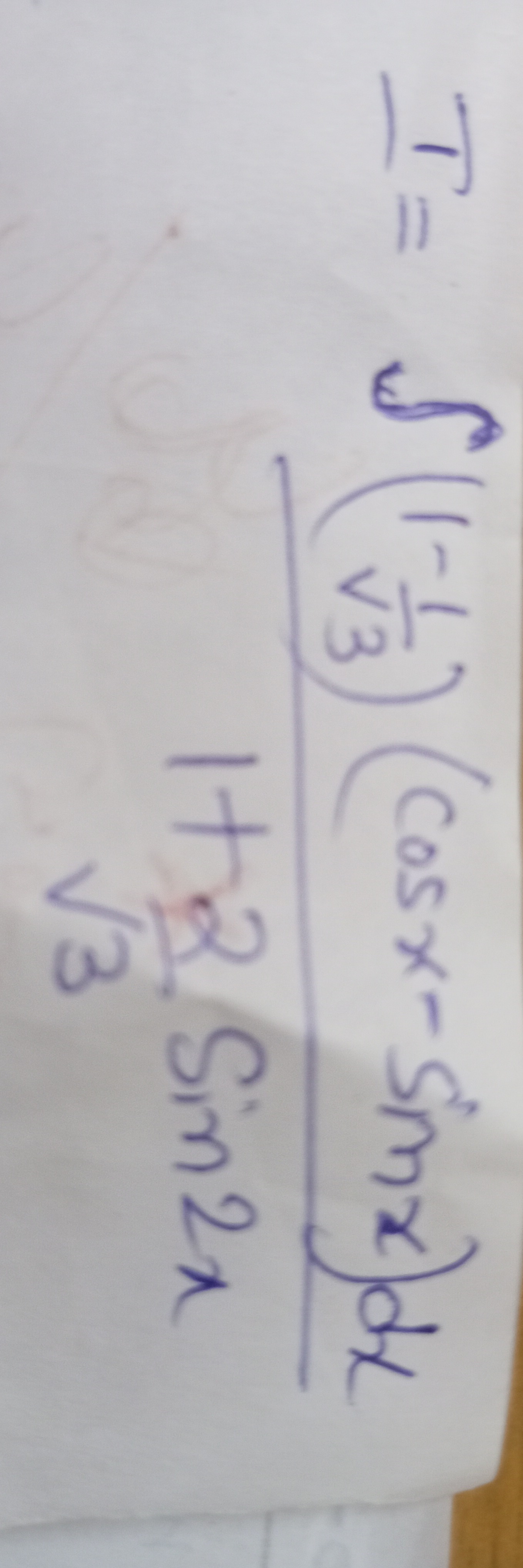Question
Question: $$I=\int_{\frac{-1}{\sqrt{3}}}^{\frac{1}{\sqrt{3}}} \frac{(cosx-sinx)dx}{1+2sin2x}$$...
I=∫3−1311+2sin2x(cosx−sinx)dx

Diverges
Solution
To evaluate the integral I=∫3−1311+2sin2x(cosx−sinx)dx, we must consider the possibility of singularities within the interval of integration.
First, we identify potential singularities by finding where the denominator is zero: 1+2sin(2x)=0 sin(2x)=−21
The general solution for 2x is: 2x=−6π+2nπor2x=67π+2nπ Where n is an integer. Thus, x=−12π+nπorx=127π+nπ
We need to determine if any of these singularities lie within the interval [−31,31]. Since 31≈0.577 and 12π≈0.262, we can see that x=−12π is within the interval of integration.
Specifically, −31≤−12π≤31 because −0.577≤−0.262≤0.577.
Since there is a singularity at x=−12π within the interval of integration, the integral is improper. The behavior of the integrand near this singularity determines whether the integral converges or diverges.
Let f(x)=1+2sin(2x)cosx−sinx. As x approaches −12π, the denominator approaches zero. The numerator at this point is:
cos(−12π)−sin(−12π)=cos(12π)+sin(12π)
Since cos(12π)+sin(12π)=0, the integrand has a non-removable singularity at x=−12π. This implies the integral diverges.
Therefore, the given integral diverges because of the singularity at x=−12π within the interval of integration.
